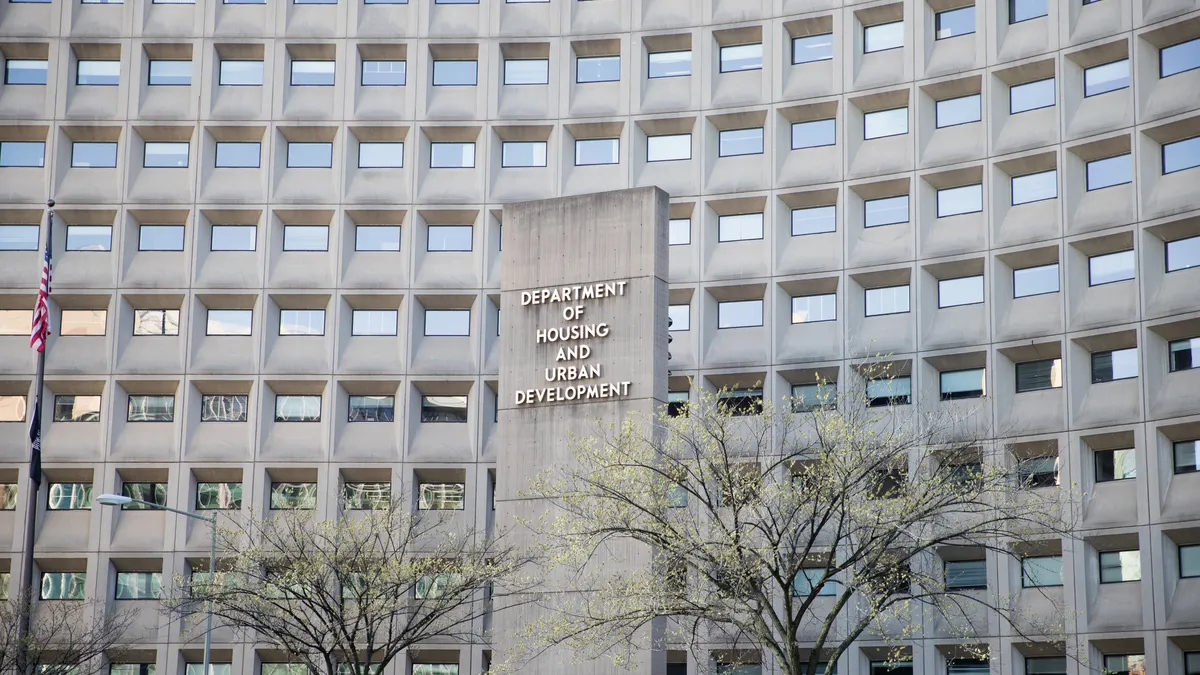Dive Brief:
- The Federal Trade Commission and the Consumer Financial Protection Bureau have ordered Chicago-based consumer credit reporting agency TransUnion and a subsidiary, TransUnion Rental Screening Solutions, to pay a total of $23 million to settle charges of violating the Fair Credit Reporting Act.
- TransUnion is charged with failing to take steps to ensure that the consumer background screening reports it collected for its clients, including employers and housing providers, were accurate. Until April 2021, TURSS often reported multiple developments in the same eviction proceeding as separate evictions, did not accurately report the outcomes of evictions and did not prevent sealed eviction records from appearing in its reports, according to the FTC.
- The CFPB also said that TransUnion failed to place or remove security freezes on credit reports when requested, then erroneously told consumers that the requests had been completed. The company also failed to keep active-duty members of the military off prescreened solicitation lists, according to the bureau.
Dive Insight:
The charge is a total of two settlements — $15 million to the FTC and $8 million to the CFPB. The FTC’s penalty is the largest the agency has collected in a tenant screening matter, it said.
In both cases, the agencies claim that inaccurate and incomplete eviction records reported by TransUnion hampered consumers’ ability to obtain housing. This includes additional time and money spent searching, extra application fees and time spent correcting errors. The FTC also claims that TransUnion failed to disclose the names of third-party vendors from which it received criminal and eviction record info in its tenant screening reports, making the process of correcting errors more difficult.
“Consumers struggling to find housing shouldn’t be shut out by tenant screening reports that are ridden with errors and based on data from secret sources,” said Samuel Levine, director of the FTC’s Bureau of Consumer Protection, in the release. “Protecting consumers looking for housing is critical to a fair economy.”
TransUnion does not admit wrongdoing in either settlement, according to a company statement provided to Multifamily Dive. “TransUnion agreed to these settlements to resolve these matters and proceed with our work providing important services and helping consumers reach their goals,” the statement said.
New practices
TransUnion has modified its practices in recent years in order to correct and prevent the issues presented in the charges, according to both the company and the FTC. In a blog post published the day the settlement was announced, the FTC stated that the proposed TransUnion settlement includes “notable compliance advice” for companies covered under the FCRA.
“Over the past year, we have worked with the CFPB and FTC to enhance our rental screening reporting practices, including making certain changes to how eviction records are reported. We believe these changes will soon become industry standard,” TransUnion said in its statement.
The company has also cleared its backlog of nearly 40,000 security freeze requests, according to the CFPB, after the bureau informed TransUnion that it was going to conduct an exam of its practices.
“We enacted enhancements to ensure timely placement and removal of security freezes and locks,” the statement continues. “We corrected associated system issues in 2020 and have processes in place to monitor and address any issues going forward.”
As part of its penalty, TransUnion must put the following procedures in place:
- Enact procedures to ensure the accuracy of the information in its reports.
- Prevent the inclusion of problematic records, including sealed records, unresolved cases and any monetary amounts other than final judgements.
- Disclose information sources, including third-party vendors, in a consumer’s file.
- Implement practices that will allow the company to identify and fix issues with criminal and eviction records.
- Provide consumers with the information in their file upon request at no change.
- Provide an “adverse action notice letter” for landlords to give applicants as a prompt to share their tenant screening report.
- Identify and solve technology problems before they harm consumers, including the issue with freeze and lock requests.











